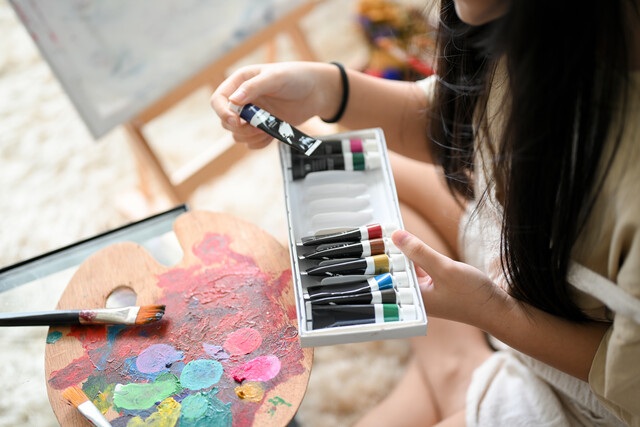Color Theory, Color Mixing, and Technique
Unlock Your Palette: Master Color Like Never Before
Color Theory, Color Mixing, and Technique

Unlock Your Palette: Master Color Like Never Before

Unlock the vibrant language of color and transform your artistry into a mesmerizing expression of emotion and imagination. Envision harnessing the stories each color whispers, unraveling the secrets of hues beyond their surface beauty. This course is your gateway to mastering the art of color theory, an intricate dance of science and soul that influences our perceptions and shapes our realities. Discover the hidden narratives behind every brushstroke and composition, and become a visionary in your craft. With guidance and inspiration, you'll delve into the psychology and techniques that elevate artwork to a masterpiece. Don't just create; captivate, with colors that breathe life into your world. This isn't just learning--it's a journey to artistic brilliance. Join us and redefine what's possible.
In This Course 
4 Hours average completion time
0.4 CEUs
15 Lessons
25 Exams & Assignments
834 Discussions
15 Videos
31 Reference Files
159 Articles
Mobile Friendly
Last Updated January 2026
Description 
Imagine a world painted in shades of gray; life without the crimson embrace of a sunset or the tranquil blues of the ocean depths. It's almost unthinkable, isn't it? Color isn't merely a visual treat; it's the silent soundtrack to our lives. From the golden glow heralding dawn to the hues we choose to adorn our bodies and living spaces, colors narrate our existence, shaping emotions, influencing choices, and crafting memories.
Welcome to a transformative journey into the heart of colors. As artists, we don't just see colors; we feel them, imbibe their energy, and translate that essence into evocative masterpieces. Whether you're enchanted by the ethereal quality of pastels or drawn to the electrifying pulse of jewel tones, there's an entire spectrum waiting for you to explore, understand, and redefine.
This course isn't merely an exploration; it's an invitation to dive deep into the psychology, science, and emotion behind each shade and tint. Unlock the mysteries of color theory, a fascinating realm that dissects how humans not just see but resonate with colors. Every hue has a story, every gradient an emotion, and every palette a world of its own.
By melding the science of perception with the art of creation, you'll emerge not just as an artist, but as a master storyteller, weaving tales through strokes and shades. With each module, we'll not just learn but feel, experimenting, mixing, and creating colors that echo our innermost feelings.
So, are you ready to unlock a universe where each color sings its own song, where canvases come alive with tales whispered in tones and shades? Join us, as we embark on an illuminating voyage into the enthralling world of color, and let's paint our stories together!
Skills You'll Develop 
- Color harmony and balance
- Developing personal color style
- Color-driven storytelling
- Effective color communication
- Advanced mixing techniques
- Mastery of hues and tones
- Cultural color interpretation
- Emotional impact through color
- Understanding color psychology
- Creating visual depth
- Innovative digital color tools
Discover More Skills Like These 
Related Courses 
-

Beyond the Crust: The Heart and Soul of Bread Baking
-

Crisis Management
-

American Government
-

Disaster Risk Reduction: Preparing for Emergencies
-

Weight Training
-

Successfully Networking Your Career
-

Cross-Cultural Communication
-

MySQL
-

Crystal Reports
-

Pinterest
-

Medical Abbreviations
-

How to Start and Run an Online Business
-

Mortgage Loan Processing
-

Historical Fiction Writing
-

Workplace Sexual Harassment in the #MeToo Era
-

Building a Bully-Free Future
-

Chinese Culture Studies
-

Business Research Methods
-

Job Performance Appraisals - A How To Guide
-

General Secretary